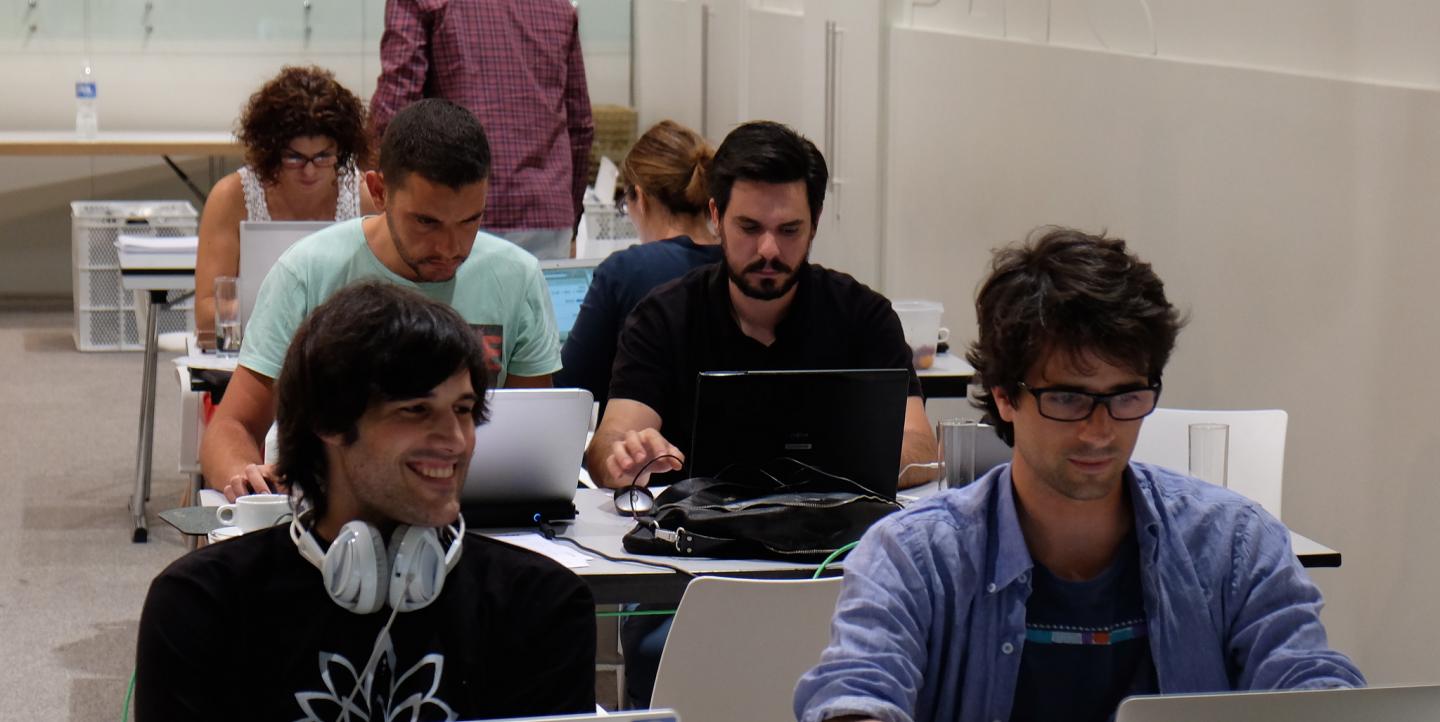There are a wealth of resources online — some more active than others. We’ve compiled a list of groups we love for their enthusiastic members, participation and community camaraderie.
This is far from an exhaustive list. You can find longer lists here and here, though some groups are more dormant than others.
As always, the major rules of each group are common sense. Play nice. Help the other members. And what happens in the social media group stays in the social media group.
Ah, Facebook. For many journalists, the platform is as much about work as about play, and the center of discussions on the dilemmas facing modern journalism. The groups, however, are one way Facebook undoubtedly can work in our favor.
Out of the Binders: Exclusively for women and gender non-conforming writers. Established with the sole purpose of tackling under-representation of women in media, and so it covers a range of writing: book publishing, entertainment, journalism, poetry, etc. It’s very large, but very supportive, and has an annual conference in New York City.
Engaged Journalism: A group dedicated to sharing ideas and asking questions on anything related to community engagement and audience development.
![]() Freelance Journalists UK: The United Kingdom has an amazing array of publications, and if you’re keen on working with the editors and writers on that side of the pond, this group wants to help.
Freelance Journalists UK: The United Kingdom has an amazing array of publications, and if you’re keen on working with the editors and writers on that side of the pond, this group wants to help.
The group stays true to its name and is very region-specific, which contributes to its efficacy; not the place to go for general global journalism chat, or if you’re not serious about actively working in the UK media world. However, for those who are, you won’t find a smarter or more resourceful set of peers online. Note: There is a vetting process for entry.
Minorities in Digital Media: One of our newer communities, but very much needed! Posting fellowships, jobs and general encouragement to minority media workers. They even had their first offline mixer recently (New York-based).
As a note, you do have to be a member of an underrepresented group in media to sign up. (If you like this, check out Writers of Color on Twitter too.)
Create Your Nomadtopia: Important to note that this isn’t a writer’s group, and you shouldn’t sign up if you’re looking for advice on the practice of journalism itself. Rather, it offers advice and support for location-independent living. Various nomadic professionals have banded together to answer all the small, but crucial details that crop up during life on the road. This isn’t the group to go to further your writing career, but it is an invaluable resource for planning your life around a job that assumes your office is the world.
Slack
For those of you who don’t know about Slack, it is a powerful messaging application that has quickly become a fixture in media companies worldwide. It also allows free communities; all you need to do is ask for an invite and then log in with your email. There are a number of journalism Slacks, but we’ve found two to be particularly active.
![]() Digital Journalism Rocks: This is the most active Slack community (and perhaps most active community overall) that we’ve seen. As its name suggests, it revolves around the practice of digital journalism, with channels like audience development, data visualization and mobile reporting. If you’re passionate about modern journalism (and Giphy), these are your people. (Note: application process to be invited.)
Digital Journalism Rocks: This is the most active Slack community (and perhaps most active community overall) that we’ve seen. As its name suggests, it revolves around the practice of digital journalism, with channels like audience development, data visualization and mobile reporting. If you’re passionate about modern journalism (and Giphy), these are your people. (Note: application process to be invited.)
Open Data Community: Not strictly a journalism group. Rather, this is a watering hole for anyone who works in data: research, analysis, tools, sources, etc. Anyone interested in data journalism and how much you can do with it can get a lot out of this community.
For all the talk about Twitter’s troubles, it is still a hub for journalists. Here, you can pitch, chat, follow and promote more easily and often than any other social medium, without being obnoxious.
 One under-used aspect of Twitter is searching hashtags. If you’re curious about journalism, #journalism, #journo, #journalists, #journalist, #journojobs are all obvious and popular go-tos. However, chats are a great way to engage other members on Twitter, and get those sought-after @’s from notable media figures.
One under-used aspect of Twitter is searching hashtags. If you’re curious about journalism, #journalism, #journo, #journalists, #journalist, #journojobs are all obvious and popular go-tos. However, chats are a great way to engage other members on Twitter, and get those sought-after @’s from notable media figures.
#wjchat: At 17:00 (5 p.m.) PDT, wjchat (short for web journalism chat) tackles all things “content, technology, ethics and business of journalism on the web.’
#MuckRackCafe is a good stand-in while the popular #muckedup is on hiatus. A monthly 30-minute Q&A with a journalist.
Also, good tags to keep your eye on: #digitaljournalism, #digitalnews, #digitalmedia, #journchat, #mediadiversity, #ddj (data driven journalism).
This post is an excerpt of an article that originally appeared on HackPack.press. HackPack offers weekly TechCorners, highlighted grants and job opportunities. Register here.
Main image CC-licensed by Flickr via Global Editors Network.


